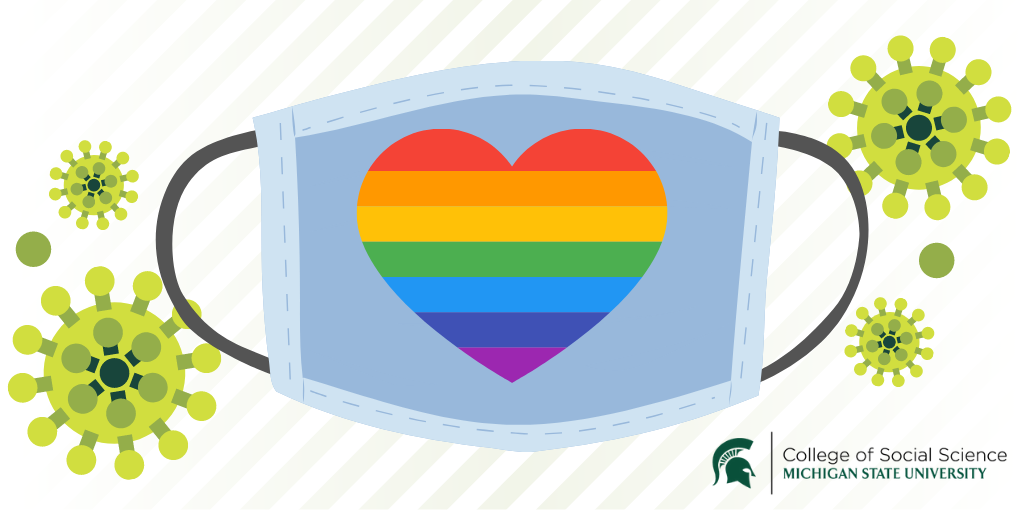MSU sociologists explore the effects of COVID-19 on sexual and gender minorities of color
May 21, 2020 - Karessa Weir
The effects of COVID-19 are hitting sexual and gender minorities of color especially hard, according to a recently funded proposal by two MSU Sociology professors.
D rs. Ning Hsieh and stef shuster (pictured left) are investigating how COVID-19 is creating different kinds of risks, health concerns and coping strategies for sexual and gender minorities and comparing those risks for people of color with their white sexual and gender minority counterparts.
rs. Ning Hsieh and stef shuster (pictured left) are investigating how COVID-19 is creating different kinds of risks, health concerns and coping strategies for sexual and gender minorities and comparing those risks for people of color with their white sexual and gender minority counterparts.
The results will be used to inform public health officials on the particular vulnerabilities that these minorities face.
“During a global pandemic, we anticipate that the lack of social and economic resources will be amplified for the SGM community, especially so for people of color. It is thus important to study how access to social support, management of relationship conflict (e.g., from families of origin, friends, and communities), and maintenance of economic stability shape SGMs’ health and well-being during and after COVID-19” shuster and Hsieh wrote.
They were awarded a $5,000 COVID-19 research grant from MSU’s College of Social Science. The proposal “was one of the highest ranked of the submitted applications” to the Small Grants Competition, said Dr. Anna Maria Santiago, Associate Dean for Research and Graduate Studies for the College.
Previous research has shown that social isolation and loneliness were already more prevalent among lesbian, gay and transgender people even before the onset of the pandemic. They deal with family estrangements and have higher rates of living alone, leading to increased depression, cognitive decline, heart disease and mortality.
There are also economic concerns as sexual orientation and gender is shown to play a part in discrimination in the labor market and lack of access to higher education. This means many sexual and gender minorities have little to no health insurance, are under or unemployed and have lower household incomes.
“For sexual and gender minorities of color, these health disparities are exacerbated,” the team wrote.
Hsieh and shuster had previously received approval to conduct an online survey of LBGTQ+ people in the Greater Lansing area. They were able to add a section on the social and economic impacts of COVID-19.
“Based on the data collected so far, we have already seen tremendous impacts of COVID-19 on the Lansing SGM community,” they wrote.
Specifically, they’ve found 40 percent of the sample reported job loss or significant income loss due to the pandemic.
This current research project will expand that survey to include people of color and conduct dedicated focus groups and interviews “to assess the most pressing issues sexual and gender minorities of color and experiencing as a result of COVID-19.”
The team expects to use the results to apply for grants with the National Institutes of Health and the Robert Wood Johnson Foundation to compare their results with state and national data. They will also share their results with the local communities in Lansing to help them identify experiences in inequality.


